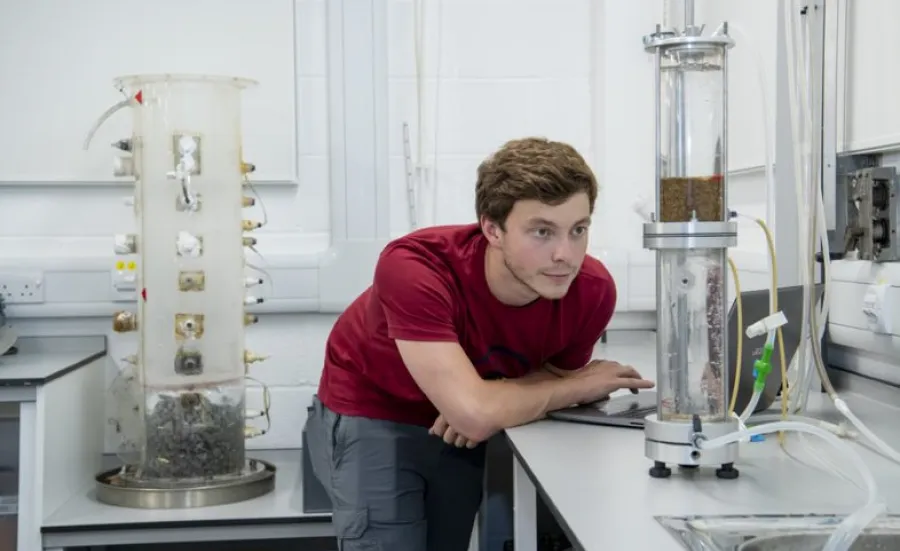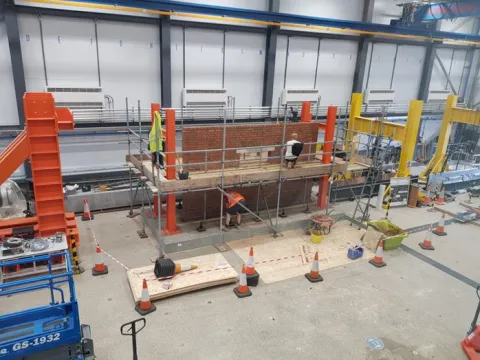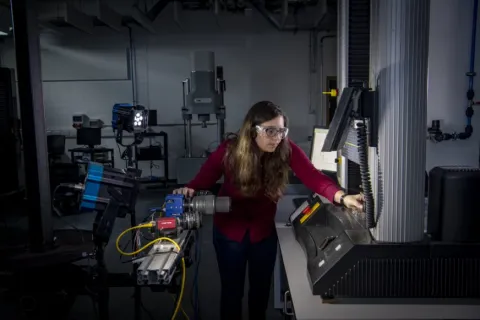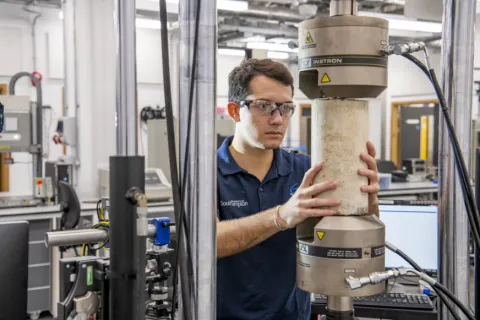Equipment includes:
Electro-mechanical dynamic cyclic simple shear
This can shear a 100mm diameter cylinder of soil, under conditions of either constant volume or constant stress.
It allows us to determine the shear behaviour of the sample, including the shear modulus.
It's particularly useful for testing soft sediments such as clays, but can been used for stiffer materials such as chalk.
The machine's dynamic capability allows testing up to 5 Hz at small strains (0.005% amplitude) up to larger strains (10% amplitude).
Maximum displacement at 5 Hz is +/- 1 mm.
The machine is rated at up to 10 kN applied load (axial and shear).
Gas hydrate resonant column apparatus
This was developed to model methane hydrates in the laboratory, and to determine dynamic properties of the resulting specimen.
The apparatus consists of a high-pressure containment cell (250 bar) within an environmental chamber (minus 25 degrees C).
By introducing methane gas into a sand specimen, formation of hydrates can be controlled under similar conditions to natural hydrate-bearing sediments.
The cylindrical specimen is fitted with a drive head, consisting of electromagnets energised by sinusoidal frequencies.
By applying torsion to the specimen over a range of frequencies, we can establish parameters such as the shear modulus and damping ratio.
Sample sizes are 70 mm diameter by 140 mm high.
Hollow cylinder apparatus
This apparatus subjects a hollow cylindrical sample to multiple stress paths, with control of the 3 main stresses.
This is made possible with independent control and cycling of the inner and outer cell pressures, axial stress and base rotation or torque.
The ability to apply a torque force allows the study of the effect of principal stress rotation (PSR) and soil anisotropy.
The hollow cylinder sample has a 100mm outer diameter, with an inner diameter of 60mm.
The apparatus has a load capacity up to 10kN, with 100 Nm torque capability.
Silicon oil is used as cell fluid and the maximum confining pressure is 1700kPa controlled with high accuracy controllers.
A complete set of local instrumentation can be applied to the sample for increased accuracy. This includes local axial and radial displacement, circumferential displacement and local pore pressure measurement.





